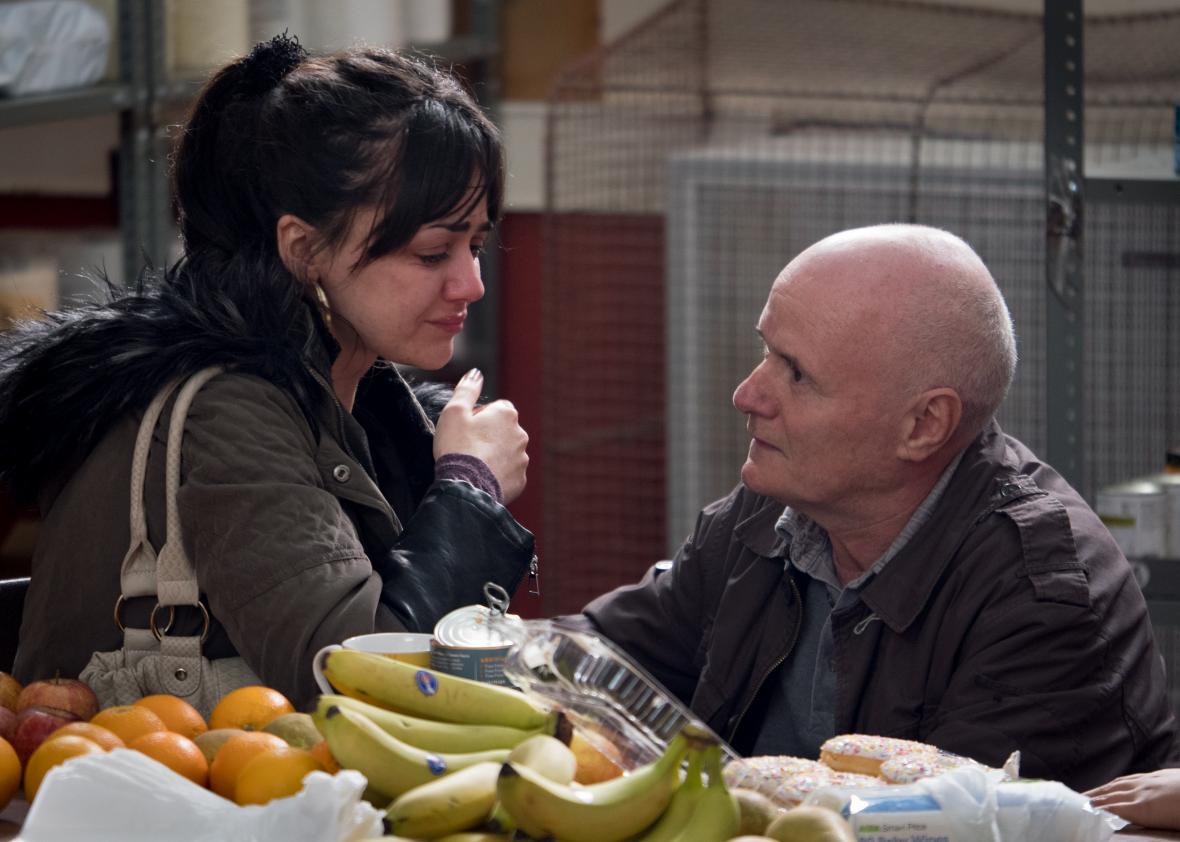You Don’t Have to Understand the British Welfare State to Get I, Daniel Blake, but You Should Know This Song

IFC Films
No knowledge of the British welfare system is required to understand I, Daniel Blake. Ken Loach’s movie, which won the Palme d’Or at Cannes in May, tells the story of a man caught in a Kafka-esque battle with an unbending bureaucracy. (The movie is now playing in New York and Los Angeles; further cities will be added in coming weeks.) Understanding the distinction between Employment and Support Allowance and Jobseeker’s Allowance isn’t critical to understanding Daniel’s situation; what’s important is recognizing that he is being subjected to a series of pointless and humiliating tests. But there are elements in the film whose meaning may be lost on audiences outside the U.K.
Take, for instance, “Sailing By,” the waltz that is heard several times during the course of the movie. Early on, Daniel Blake is shown listening to the tune as he carves wooden figures. Most British viewers will recognize the music as the song that plays at the end of the day’s programming on Radio 4, just before the Shipping Forecast. If Daniel is hearing it as he sands and shapes, it means he’s up late listening to the news, drama, and documentaries that air on the station. This identifies Blake as serious, smart, and solitary—rather than being down the pub, watching television, or listening to trashy talk radio, this working-class bloke is tuned in to the BBC’s highbrow spoken-word channel.
The tune’s name also ties into the maritime imagery that runs throughout the movie. Daniel is carving wooden fish as he listens to “Sailing By” and the Shipping Forecast that follows it. Whether he’s up a creek without a paddle, all at sea, or not waving but drowning, the tune evokes the notion of Daniel as a small blip in a large ocean. What’s more, given its role as Radio 4’s signoff music—at 1 a.m., after the Shipping Forecast and “God Save the Queen,” the station goes off the air until 5:20—it also signifies an ending, which fits with I, Daniel Blake’s message that the welfare safety net Britain has known since the mid-1940s is in imminent danger of disappearing. This sense of obsolescence comes up again when a child asks Blake to identify a strange object she finds in his flat. It turns out to be a cassette of “Sailing By,” which, he explains, was his late wife’s favorite tune. (Of course, the Shipping Forecast itself is so olde-world it seems like something that’s destined for the chopping block. Apparently, though, it’s not just a matter of tradition and habit; even today, commercial fishermen and coastal dwellers really do rely on it. In 2013, Frank O'Neill of the Dover Maritime Rescue Co-ordination Centre told the BBC, "There is no other weather format which contains all the information in one go.")
This isn’t the first time 80-year-old Loach has used the Shipping Forecast in one of his movies. (It also figures prominently in the opening of Terence Davies’ Distant Voices, Still Lives.) In 1969’s Kes, Billy Casper, the troubled boy at the center of the film, reveals that he, too, is captivated by it. “I like to hear it every night, sir, I like t’names,” Billy tells his uncaring teacher. For Loach, a soft spot for the nightly recitation of maritime meteorological conditions has always been a sign of a good heart.
